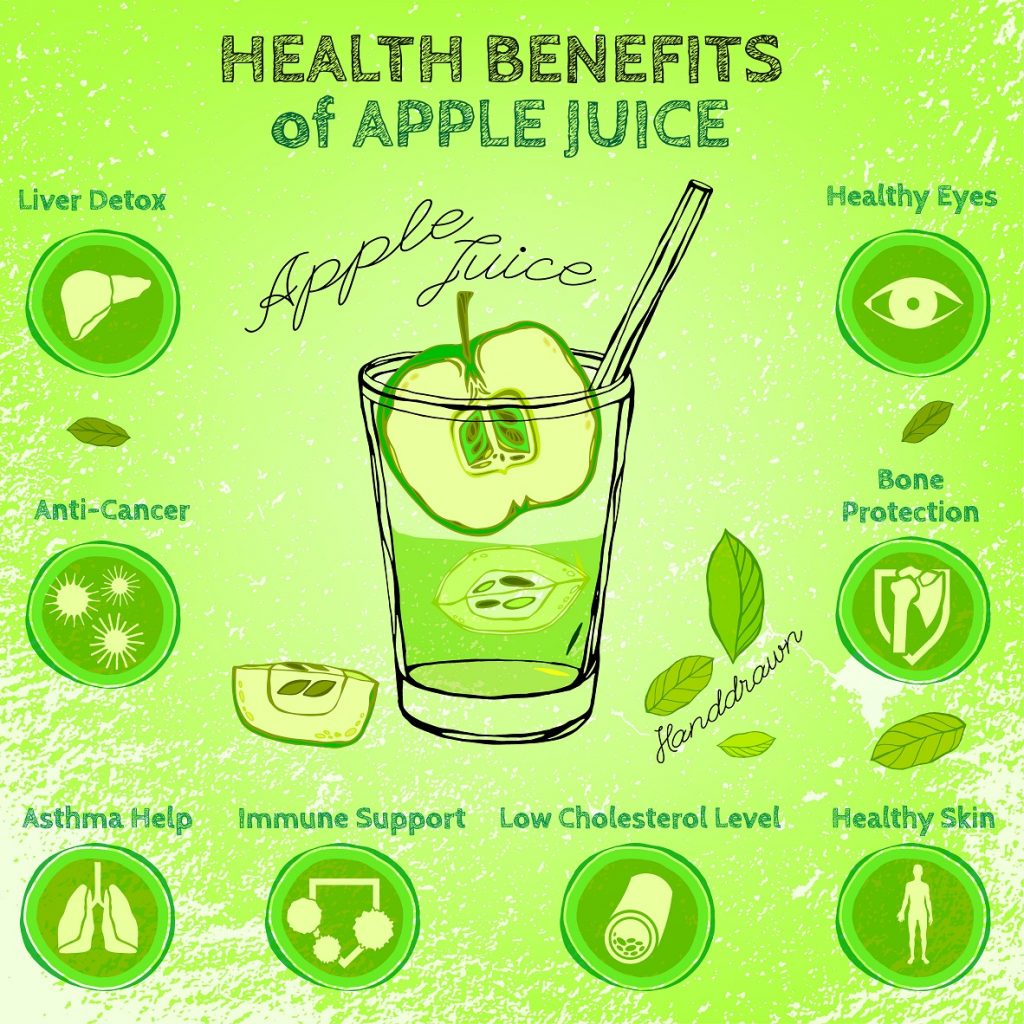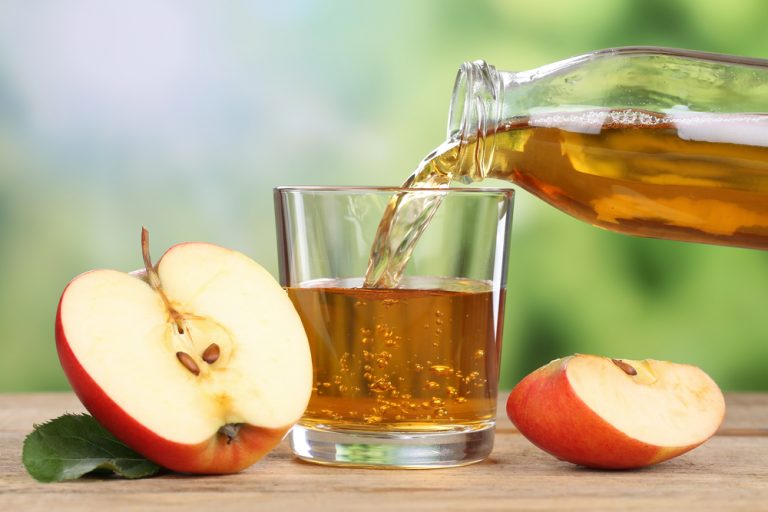Apples and apple juice are among products of high nutritional value. In England, it is said that by eating one apple a day we keep a doctor away. There is a lot of reason for this because apples provide a lot of the nutrients that determine their healing properties. In addition, apples have a low calorific value, because 100 g is only 46 kcal.
Apple juice - nutritional value and properties
Apple juice is primarily a source of dietary fibre, which is essential for proper intestinal function and digestion. It contains many vitamins and minerals, such as vitamin C, A, E, potassium and healthy acids. Apples and their preparations are also rich in antioxidants that inhibit free radicals.
- apple juice is mainly a source of dietary fibre
- strengthens the immune system, thanks to high vitamin C content
- it supports the process of cleaning the body of toxins, due to a large dose of fibre, which sweeps away unnecessary metabolites
- it impacts the regulation of water and electrolyte metabolism in the body, due to the potassium present in apple juice
- it neutralizes the activity of free radicals, thus delaying the body's ageing processes and protecting it from many diseases, including cancer, which is due to its high antioxidant content

Can apple juice make us gain weight? What does apple juice help with?
Apple juice is especially recommended for people struggling with frequent constipation. It contains large amounts of dietary fibre, which includes pectin. Fibre increases the volume of faecal masses, stimulates intestines to work, which makes it possible to quickly and regularly empty them.
Apple juice
The dietary fibre acts like a brush in the digestive tract. It sweeps away all unnecessary food residues in the intestines and regulates their work, thus preventing the recurrence of persistent constipation problems. It is enough to drink a glass of apple juice every day or eat one fruit in its raw form.
Apple juice is also an excellent means to support effective weight loss. Both natural apple juice and apple juice are considered to be low-calorie products. One medium-sized apple provides only about 90 kcal and a glass of apple juice about 100 kcal. They are therefore recommended as a snack between meals or in addition to lunch or breakfast.
In addition, apples and apple juice have a low glycemic index, so their consumption prevents sudden hunger attacks. By filling the stomach, they give a feeling of satiety for a longer time, which makes it easy to persevere without snacking up to the next meal. In addition, they support the cleansing of the body from toxins and its deacidification, which is essential in the fight against unnecessary kilograms.
The beneficial effect of healthy apple juice on digestion contributes to the acceleration of metabolism and more intensive burning of calories consumed with food. However, one should remember to keep moderation in eating apples, because they also have sugar in their composition. One or two apples a day will certainly have a positive effect on health and will not harm anyone.
How to choose good apple juice?
Naturally, cloudy apple juices are best, as they contain much more useful compounds than clear juices. This mainly concerns antioxidants, which can be up to four times more in cloudy juice than in other types. And it is antioxidants that are responsible for most of the health properties of apple juice.
Besides, before making a purchase, you should make sure that it is definitely a natural juice and not a drink or nectar. Nectars and fruit drinks contain only negligible amounts of fruit and are an abundant source of white sugar or, worse still, glucose and fructose syrup.
It is worth remembering that the healthiest juices are day-old and freshly squeezed juices with a short shelf life. Such preparations are not pasteurised or are only mildly fixed, so during the technological process there is no loss of thermolabile substances.
When making a purchase, it is always worth reading the label to check that the juice contains no artificial dyes and preservatives that have a negative impact on health.






